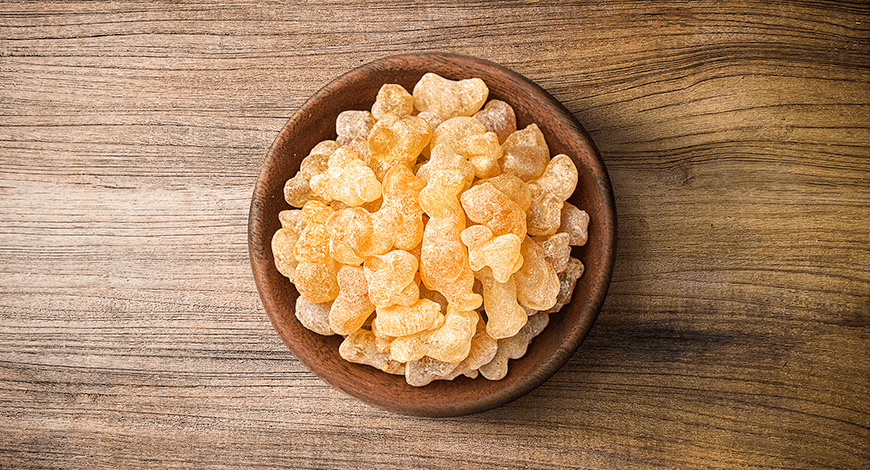Olibanum (Luban). also known as Frankincense, is tapped from the Boswellia Papyrifera tree by slashing the bark which is called striping and allowing the exuded resin to bleed out and harden. These hardened resins are called tears with greenish to yellow colour solid in the form of irregular nodules which on pressing form a slightly plastic mass.
Olibanum trees are growing in the Horn of Africa (Sudan, Somalia, Ethiopian or Eritrea) to the Indian subcontinent, passing through some Arab countries like Yemen and more particularly the Sultanate of Oman which produces the most prized incense in the world. Olibanums come from various trees depending on the region of production.
It is used as a perfume fixative, in the production of soap, in folkloric medicine, as an incense in holy places, and as an insecticide
Olibanum Specifications
Solubility: Partially dissolves in distilled water forming a milky emulsion, insoluble in ethanol.
Loss on drying: Less than 10%(105 C, 5hrs).
PURITY
Total ash* Less than 2%
Nitrogen content* 0.26 to 0.31%.
Oil content* Not less than 2%
Heavy metals* Not more than 40 mg/kg.
Tannin – bearing gums Formation of a black precipitate indicates presence of tannin.
MICROBIOLOGICAL CRITERIA
Salmonella sp.: Negative per test.
Ecoli : Negative in 1gm.


